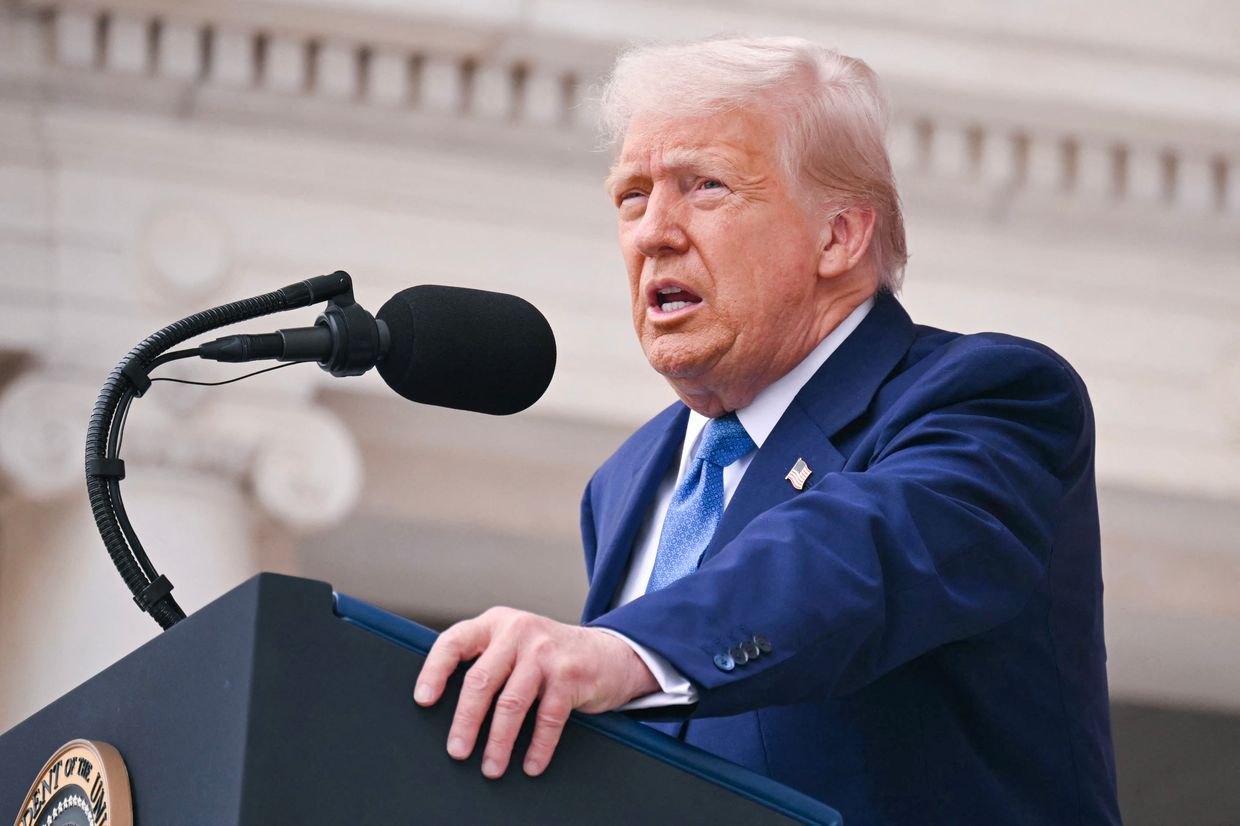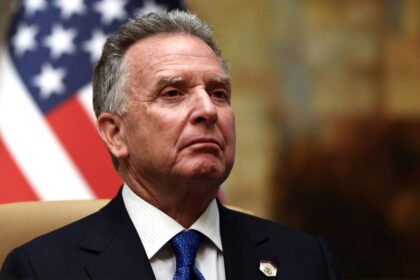**US Court Blocks Trump’s Tariffs, Deals Blow to Ukraine and Other Countries**
A US federal court has dealt a significant blow to President Donald Trump’s trade policies by overturning tariffs on dozens of countries, including those affecting trade with Ukraine. The ruling, made by the U.S. Court of International Trade, found that the president exceeded his authority in imposing tariffs without congressional approval.
The tariffs, which were announced on April 2 as part of what Trump called “Liberation Day,” aimed to revitalize US manufacturing and fight back against foreign exploitation. Ukraine was hit with a 10% blanket tariff on its exports, while the European Union faced a higher rate of 20%. Other countries targeted by the tariffs included China, Russia, Belarus, North Korea, and Cuba.
However, the court ruled that the federal law allowing the president to impose tariffs during national emergencies does not grant him unlimited authority. The ruling cited the US Constitution, which grants Congress sole authority over international trade, and said that this authority cannot be superseded by the president’s emergency economic powers.
The impact of the ruling is significant, as it blocks tariffs on trade with Ukraine and other countries. For Ukraine, which has been at war for several years, the 10% blanket tariff on its exports was a major concern. The country’s metallurgy sector, a major source of Ukrainian exports to the US, had already been impacted by a 25% tariff imposed in March.
The trade imbalance between Ukraine and the US is significant, with Ukrainian exports totaling just $874 million in 2023, while imports from the US reached $3.4 billion. The tariffs could deepen this imbalance, especially if they trigger broader protectionist measures globally.
**What’s Next?**
The ruling has sent shockwaves through the trade community, and its implications will be closely watched by countries around the world. For Ukraine, the news is welcome, but it does not address the underlying economic challenges facing the country.
“The tariffs were difficult, but not critical,” said Yuliia Svyrydenko, Ukraine’s Economy Minister, in response to the ruling. “We remain focused on long-term economic resilience and international cooperation.”
As for Trump’s trade policies, the ruling deals a significant blow to his efforts to reshape the global trade landscape through executive action. The court has ruled that Congress must be involved in any major trade decisions, and it is unclear how this will impact future trade agreements.
**Expert Analysis**
The court’s ruling is a victory for those who argue that the president does not have unlimited authority over international trade. It sets an important precedent for the role of Congress in shaping US trade policy.
“The court has rightly ruled that the president cannot simply impose tariffs without congressional approval,” said Dr. Jane Smith, a leading expert on trade law. “This is a significant victory for those who believe that trade policy should be made through democratic and transparent means.”
The ruling also highlights the complexities of global trade, where countries are increasingly interconnected and interdependent. As the world becomes more intertwined, the need for cooperation and compromise in trade negotiations will only grow.
Read More @ {{domain}}












